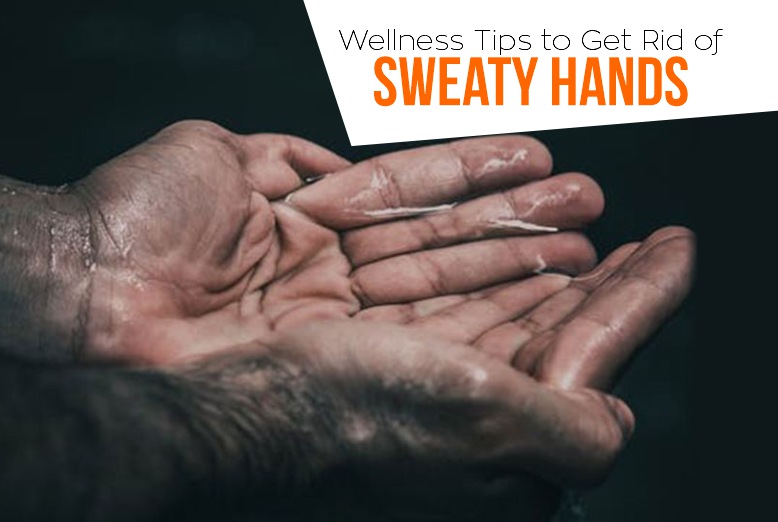Sweating helps regulate body temperature. Without sweating, the body might overheat and develop a life-threatening condition called heatstroke. However, excessive sweating alias hyperhidrosis can be challenging and embarrassing to live with.
Read along to learn more about hyperhidrosis and its preventive measures.
What Causes Hyperhidrosis
Hyperhidrosis results from overactive sweat glands. Your nervous system signals the body to produce sweat when the body temperature rises. It happens especially when you feel nervous or anxious after a workout or when the temperature is high. The sweating occurs in any or all of these areas:
- Palms
- Underarms
- Bottoms of the feet
- Scalp
- Groin
- Face
- Under the breasts
Areas that produce excessive sweat usually appear white or pink. In some cases, the skin can appear scaly, soft, and cracked, particularly on the feet. You might also have odor caused by yeast and bacteria on the wet skin.
There are also unique cases like when expecting moms experience “night sweats” or “hot flashes” during their postpartum period (from birth to around six weeks later). Check out this article to know more about how to handle this certain condition.
You can stop hyperhidrosis by visiting a dermatologist if you suspect symptoms like night sweats, light-headedness, nausea, chest pain, etc. They’ll ask about your health history and the medications you’re currently taking. Your dermatologist might also order lab tests that include blood and urine test to check for low blood sugar or overactive thyroid.
You might also need a sweat test whereby your dermatologist identifies parts of your body experiencing excessive sweating. This test involves your dermatologist applying a powdery substance to different parts of your skin. The powder turns purple when you sweat.
Prevention of Hyperhidrosis
Prevention of excessive sweating can either be through medical or home remedies ways. Medical treatment depends on your age, symptoms, and overall health. Here are medical practices to help reduce excessive sweating:
Surgery
Surgery option is mainly recommended in extreme conditions. Surgical options might include nerve surgery, sweat gland removal, and microwave therapy. Surgery is only considered if your dermatologist ascertains that you have a severe condition causing you to sweat excessively.
Antiperspirant
An antiperspirant drug helps stop excessive sweating by blocking sweat glands. It comes in gels, sprays, sticks, and creams and can be bought at a drugstore. You should apply an antiperspirant drug on dry skin at night before sleeping. This drug shouldn’t be used on the face as it irritates the skin for some people.
Anticholinergic Medicine
Anticholinergic drugs help stop the activation of the sweat glands. However, they aren’t suitable for everyone because they cause side effects like difficulty peeing, dry mouth, dry eyes, heart palpitations, blurred vision, etc.
Botulinum Toxin
Another treatment for excessive sweating is injections of botulinum toxin, the same drug used to reduce wrinkles. Botulinum toxin is approved for treating heavy sweating of the underarms. However, it’s also used on the soles of the feet and palms of the hands. These injections can be costly and painful.
Prescription Wipes and Creams
Prescription creams that contain glycopyrrolate can help with excessive sweating on the head and face. Wipes soaked in Qbrexza can ease symptoms of the feet, underarms, and feet. Possible side effects of the prescriptions include dry mouth and mild skin irritation.
Antidepressants
Some drugs used for depression can help decrease sweating. They can also help reduce anxiety which can cause excessive sweating.
There are also oral medications that help block nerves that trigger sweat glands. This might reduce excessive sweating as well. The possible side effects include bladder problems, blurred vision, and dry mouth.
Talking with your dermatologist about these treatments’ benefits, risks, and possible side effects would be best.
On the other hand, home remedies include:
- Limiting or avoiding alcohol, caffeine, and spicy foods
- Tracking the symptoms to help you identify and, when possible, avoid factors that trigger excessive sweating
In addition to medical treatments and home remedies, exploring comprehensive online resources can be invaluable. Websites like Sweaty Palms offer a wealth of information on managing conditions like hyperhidrosis. They provide insights into both traditional and innovative approaches to effectively controlling excessive sweating without immediately turning to surgical options.
Tips For Reducing Excessive Sweating on the Feet
These tips can help ease excessive sweating on your feet:
- Wear sandals when possible
- Remove the shoes when possible
- Wear shoes made of natural material to allow proper ventilation
- Wear socks that absorb moisture from your skin
- Avoid wearing wet socks and change them daily
- Apply antiperspirant to your feet before sleeping and wash it off in the morning
Additional Lifestyle Tips
Here are ways to control excessive sweating, particularly in hot weather:
- Stay hydrated
- Avoid physical exercise during peak sun hours
- Wear loose clothing manufactured from lightweight fabrics
- Reduce anxiety as it increases sweating
- Avoid medications that increase sweating
Takeaway
Excessive sweating might be embarrassing and provoke anxiety. Don’t let excessive sweating stop you from living your best life. You can’t hide a sweaty face, hand, feet, etc. However, you can consult a dermatologist to help put heavy sweating behind you.
ALSO READ: 8 Lifestyle Hacks To Increase Productivity At Work






















